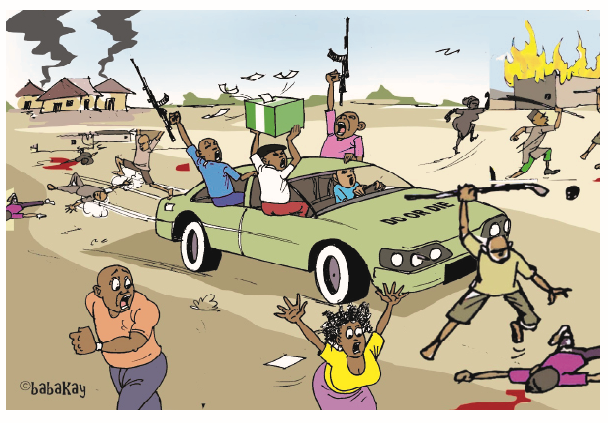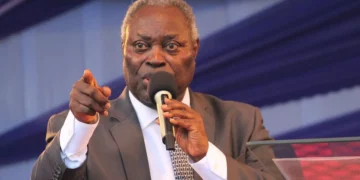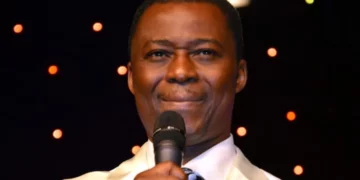Come this Saturday, November 11, the voters in Imo, Bayelsa and Kogi states will file out to elect the next governors of their states.
Choosing governors of states is part of the democratic process that is actualised by free and fair elections. Ideally, democratic elections are devoid of threat and intimidation but the signals coming out of these states, particularly Imo and Kogi leaves one in trepidation.
The rhetorics, the sight and sounds coming out of those states is that the voters are already scared and intimidated. The contending political parties are not helping matters. Indeed, they are ratcheting up the fear with their display of thuggery and intolerance.
Saturday is just an election, not a war. Sadly, of recent in Nigeria, preparing for election has become tantamount to preparing for war.
Even the Independent National Electoral Commission (INEC), expressed concern over the rising insecurity ahead of the November 11 governorship elections in Imo, Bayelsa, and Kogi states. The commission, in a statement by its National Commissioner and chairman of its Information and Voter Education Committee, Sam Olumekun, appealed to political parties and their candidates to avoid actions and utterances capable of heating up the polity.
Despite the appeal for violence free elections by INEC, the indications increasingly point to the likelihood of violent elections in the three states unless the Tinubu administration commits to diffusing the heated atmosphere.
To achieve this, the federal security agents must not only be impartial, they must be seen to be neutral. In Imo State, the Peoples Democratic Party (PDP) has accused the state governor, Hope Uzodimma, of working with the police to intimidate, harass, arrest and detain members of the opposition.
The Kogi chapter of the Social Democratic Party (SDP) had also accused Governor Yahaya Bello of frustrating its efforts to campaign for votes, across the state. Mr Isaiah Ijele, the Director General of New Media for Muri/Sam Campaign Council, made the accusation in a letter to President Tinubu.
The situation is not any different in Bayelsa State where supporters of the candidate of the Peoples Democratic Party (PDP), Governor Douye Diri and All Progressives Congress (APC) candidate, Chief Timipre Sylva have continued to trade words over allegations of violence and thuggery.
The Concerned Bayelsa Elders and Stakeholders for Democracy (CESD), a group loyal to Diri, had alleged that the immediate past minister of state for Petroleum Resources, Timipre Sylva, had sown fake police uniforms that would be worn by militants and thugs to do his bidding. On the other hand, the APC candidate, Timipre Sylva had also accused Diri’s administration of buying guns for militants and importing gunmen from neighbouring states to cause mayhem.
Consequences Of Electoral Violence
As these three states get set for gubernatorial elections, there is a pressing need to address and condemn the culture of violence that has plagued the electoral process in many states of Nigeria.
Electoral violence threatens the very foundation of Nigeria’s democracy and undermines the trust of the citizens in the electoral system. Electoral violence is a multifaceted problem that encompasses a range of issues, from voter intimidation and suppression to vandalism, arson, and even loss of life.
Perhaps the most distressing consequence of electoral violence is the loss of lives. Innocent Nigerians, seeking to exercise their democratic rights, are often caught in the crossfire of political conflicts. Lives lost in electoral violence cannot be replaced, and the trauma endured by survivors leaves deep scars on the nation’s collective psyche.
Electoral violence erodes the fundamental principles of democracy, hinders free and fair elections, set back the rule of law, and jeopardises the peaceful transfer of power. It also undermines the credibility of the electoral process and breeds disillusionment among citizens.
A governor elected in a violent and controversial manner may lack the legitimacy to govern effectively. Consequently, governance suffers, and the development and progress of the affected states are stunted. The economic implications of electoral violence are profound. Foreign investments are deterred, businesses face uncertainties, and the states’ economies tend to stagnate as a result.
History Of Electoral Violence
Imo, Bayelsa, and Kogi states have earned a reputation for electoral violence and irregularities in recent years. This reputation threatens the stability and credibility of the Nigerian electoral process, as well as the broader health of the nation’s democracy.
Imo State has experienced electoral violence in the past, with clashes between political supporters and security forces. The 2019 governorship elections, for example, were marred by violence and irregularities, leading to widespread public concern. In Bayelsa State, electoral violence has been a recurring problem. The state has witnessed incidents of voter intimidation, arson, and even political assassinations.
Such actions undermine the very essence of democracy, as elections are meant to be peaceful exercises in which the people’s voices are heard. Kogi State has also faced its share of electoral violence, particularly in the 2019 gubernatorial election, where violence, ballot box snatching, and allegations of rigging marred the process.
The consequences of these incidents continue to be felt in the state’s political landscape.
Electoral violence can lead to divisions within society, pitting communities against each other and deepening ethnic, religious, or regional fault lines. The economic impact of electoral violence, such as reduced investment and business activity, affects the livelihoods of the citizens.
It is crucial that all stakeholders in Nigeria, from the government to civil society organizations, political parties, and the media, join hands to combat electoral violence in Imo, Bayelsa, and Kogi states.
Preventing Looming Danger
Adequate security measures must be put in place to deter violence during elections. The security agencies have a pivotal role in ensuring the safety of citizens at polling stations. Voter education ensures that citizens are informed about their rights and the importance of peaceful participation in the electoral process.
Voter education campaigns can go a long way in promoting non-violence at elections. INEC must work to conduct transparent, free, and fair elections. In cases of alleged malpractice, investigations and judicial liability must be pursued to restore confidence in the process.
Political leaders themselves ought to lead by example. They cannot be seen to be encouraging violence with their words or deeds.
When the candidates themselves condemn violence, they significantly influence their supporters.
Also, media outlets should refrain from promoting hate speech or inciting violence while providing balanced and unbiased election coverage. The people of the three states deserve free and fair elections in which their voices can be heard without fear or intimidation.
Of Succession And Successors
Succession had been a serious issue right from 2007 when the first set of elected officials spent eight years in power.
Predecessors passed themselves off as godfathers and their successors as godsons. The predecessors seem to think that it is their right to determine even the policies of their successors. This has led to serious crises in many states just as we are witnessing currently in Rivers.
Over these years, we have seen that predecessors still want to call the shots even after leaving office. It is necessary for outgoing governors to know that after eight years in power, they have no business imposing themselves on their states or successors. They should let their states and their successors breathe.
MAY NIGERIA REBOUND











